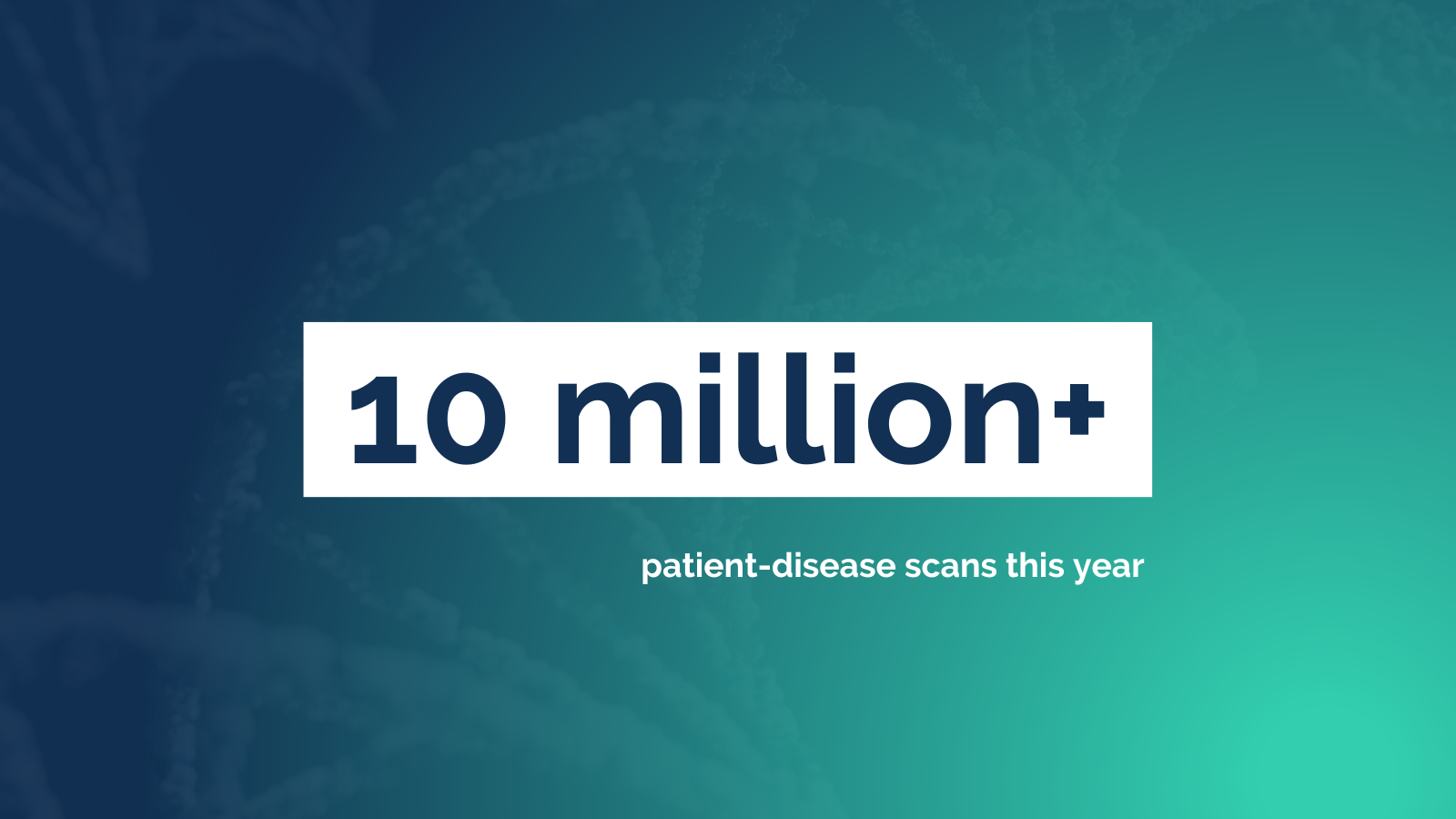10 million patient-disease scans: 5 lessons we’ve learned
GPs across the UK are using our medical device software to optimise patient care pathways. 
Clinicians and healthcare staff in primary care are using Mendelian’s Mendelscan software, a clinical decision support tool, to scan primary care electronic health records at scale against clinically validated detection algorithms for rare and hard-to-diagnose diseases.
With our tech solution in place, Mendelian has completed 10 million patient-disease scans already in 2022 - a huge milestone for us, and one that we’re proud of. Here’s what we’ve learned during the process:
1. There’s growing demand for tech to support clinical decisions
Our clinical footprint as of 2022 is bigger than ever. Of the 10 million scans we’ve done this year, 85% of them took place in the last six months alone. Not only have we been able to actively increase the number of primary care providers using our software to over 45 GP practices across the UK, but we’ve also had increased demand for the number of diseases our algorithms cover.
2. Patients can be diagnosed up to 4.4 years earlier
Our data and retrospective studies confirm that our tech is capturing undiagnosed patients years earlier than patients on typical patient pathways. In 348 patients, with 9 rare diseases, MendelScan could identify 37 patients earlier than standard care. On average, we could identify patients 4.4 years earlier (2-7 years).
3. Automate the process
Processing increasing amounts of electronic health record data over the last six months meant we had to continually improve our MendelScan software, including enhancing how it ingests data from multiple GP practices at the same time, as well as deduplicating patient data automatically.
4. Protecting patient data is the number one priority
Protecting and safely processing patient data must be at the forefront of our endeavours. On top of the GDPR, our in-house security and regulation experts have designed the safest environment possible using a concept called Defence in Depth. This concept layers different security packages, solutions, and governance to provide multiple layers of security that work in orchestration with one another.
With the Medicines and Healthcare products Regulatory Agency, we’ve worked to licence MendelScan as a Class I Medical Device with a newly achieved UKCA mark. We are proud of our rigorous post-market surveillance and how it’s used to fine-tune the accuracy of the algorithms.
5. Anything worth doing doesn’t come easy
Our plans for expansion initially slowed during the COVID-19 pandemic, but our commitment to ending the patient diagnostic odyssey has never wavered. Although we currently have 35 rare disease algorithms deployed across primary care, we actually have a library of over 200 algorithms that are built and tested across many more diseases.
We’re constantly looking at how our algorithms can be improved and where they haven’t yet met our rigorous validation threshold for wider deployment. Investigating this number of diseases has been no mean feat for us. Our team of clinicians and data scientists continue to work on getting more algorithms certified by the necessary bodies to reach as many patients as possible, at scale.
A word from our Head of Clinical
Dr Ghazanfar Khan, Head of Clinical at Mendelian said:
“10 million patient-disease scans is an incredible achievement for us and one that will help clinicians ‘join the dots’ in improving patient care. We know that GPs and other healthcare staff are doing everything they can to support their patients, but without extensive knowledge of the 8,000 rare diseases affecting one in 17 people, it can be challenging to get patients on the right pathway for diagnosis and treatment. Mendelian is thrilled to be able to use our technology to support clinicians to identify these patients earlier than ever before, and we’re looking forward to expanding our work within the NHS as part of our ambitious growth plans for 2023.”
To find out more about how Mendelian can help your healthcare organisation, you can visit this page or get in touch at contact@mendelian.co.
If you liked this article maybe you will also find interesting the following in-depth articles about other rare diseases, like A Day In The Life Of...Holly Ward